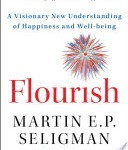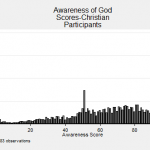Here’s an insightful op-ed piece in the Chronicle of Higher Education by Christian Smith, of Notre Dame, about the reaction to Mark Regnerus’ study of same
(By the way, an Auto-da-Fe was the ritual of public penance of condemned heretics in the Spanish Inquisition–an apt analogy for this situation)
“Whoever said inquisitions and witch hunts were things of the past? A big one is going on now. The sociologist Mark Regnerus, at the University of Texas at Austin, is being smeared in the media and subjected to an inquiry by his university over allegations of scientific misconduct.
Regnerus’s offense? His article in the July 2012 issue of Social Science Researchreported that adult children of parents who had same-sex romantic relationships, including same-sex couples as parents, have more emotional and social problems than do adult children of heterosexual parents with intact marriages. That’s it. Regnerus published ideologically unpopular research results on the contentious matter of same-sex relationships. And now he is being made to pay.
In today’s political climate, and particularly in the discipline of sociology—dominated as it is by a progressive orthodoxy—what Regnerus did is unacceptable. It makes him a heretic, a traitor—and so he must be thrown under the bus.
Regnerus’s study was based on a nationally representative sample of adult Americans, including an adequate number of respondents who had parents with same-sex relationships to make valid statistical comparisons. His data were collected by a survey firm that conducts top studies, such as the American National Election Survey, which is supported by the National Science Foundation. His sample was a clear improvement over those used by most previous studies on this topic.
Regnerus was trained in one of the best graduate programs in the country and was a postdoctoral fellow under an internationally renowned scholar of family, Glen Elder, of the University of North Carolina at Chapel Hill. (Full disclosure: I was on the faculty in Regnerus’s department and advised him for some years, but was not his dissertation chair.) His article underwent peer review, and the journal’s editor stands behind it. Regnerus also acknowledges the limitations of his study in his article, as he has done in subsequent interviews. And another recent study relying on a nationally representative sample also suggests that children of same-sex parents differ from children from intact, heterosexual marriages.
But never mind that. None of it matters. Advocacy groups and academics who support gay marriage view Regnerus’s findings as threatening. (As an aside, that is unnecessary, since his findings can be interpreted to support legal same-sex marriage, as a way to counter the family instability that helps produce the emotional and social problems Regnerus and others have found.)
Regnerus has been attacked by sociologists all around the country, including some from his own department. He has been vilified by journalists who obviously (based on what they write) understand little about social-science research. And the journal in which Regnerus published his article has been the target of a pressure campaign.
The Regnerus case needs to be understood in a larger context. Sociologists tend to be political and cultural liberals, leftists, and progressives. That itself is not a problem, in my view. (I am not a conservative.) A critical progressive outlook is part of sociology’s character and contribution to the world, making it an interesting and often useful discipline, especially when it comes to understanding poverty and inequality, determining whether social policies are effective, and establishing why education systems succeed and fail. But the ideological and political proclivities of some sociologists can create real problems.
Many sociologists view higher education as the perfect gig, a way to be paid to engage in “consciousness raising” through teaching, research, and publishing—at the expense of taxpayers, donors, and tuition-paying parents, many of whom thoughtfully believe that what those sociologists are pushing is wrong.”












